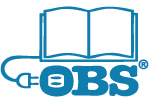On arriving in Frankfurt, Germany, for our 20th Frankfurt Book Fair, culture shock first manifested itself in the pocketbook. A $50 Travelers Check cashed in at the on-site bank returned 26 euros, enough for lunch and a postcard. Our apartment’s landlady requested cash up front. We haven’t experienced the dollar’s loss in value quite so much at home yet!
The balance has shifted in other ways as well. As part of the Digital Marketplace, we were one of three American companies among the more than 20 exhibitors, a major shift from earlier years, when U.S. companies had more prominent presence. After three solid days of manning the stand, one of us reported having had just one conversation with someone whose first language was English.
Building the online infrastructure is turning out to be a worldwide effort running on fast-forward! Much of the implementation work (such as software engineering and design, customization of open-source software, file conversion, search engine optimization, and customer support) is offered by relatively new players, many from the Subcontinent, offering substantial economies both in terms of hourly rate and in scale (four companies we spoke to each had approximately 400 employees and could turn a one-off customization into a new software feature with great speed and economy). The value of a lower hourly rate is hard to quantify in terms of amount and quality of work done, but clearly international production teams are becoming the norm.
In the online arena, the “content imperative”—the drive that ideas have to find and serve their readers in whatever medium possible—offers a new competitive arena for publishers where, increasingly, they share an infrastructure with which to publish their content. The Frankfurt market was hot for U.S. publishers selling content, particularly among medical and STM publishers we spoke to, who reported greatly increased sub rights and overseas licensing deals initiated by publishers and new, nontraditional e-publishing players.
Beyond the Fairgrounds, one of the biggest changes we noted: “No Smoking” signs have sprouted in airports and restaurants. In the Bahnhof, yellow boxes on the platforms indicate smoking zones between trains. In recent years, graffiti—once unheard of in Germany—has begun to mark some of the trains, which are not always as punctual as in earlier years.
We took one train out to Butzbach, where one of us spent childhood years on an Army base, and found the scores of buildings recently abandoned, yet in excellent repair, and guarded by occasional pairs of German police officers, as well as the occasional woman with a baby carriage. Along streets named after states—Texas, New Jersey, Massachusetts—the school and the PX sat behind padlocks and barbed wire. This fit into a postcard motif that was new this year: “Then and Now.” The “Then” shows Frankfurt in 1947, the bombed-out ruins in black and white; the “Now” shows new and strong Frankfurt in full color.
